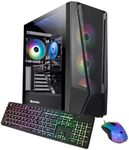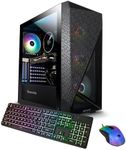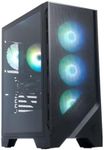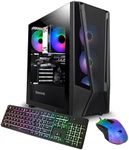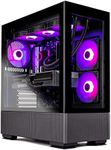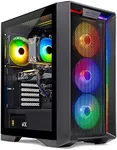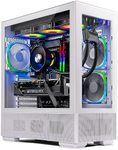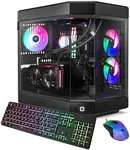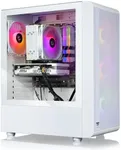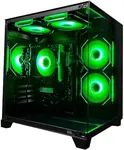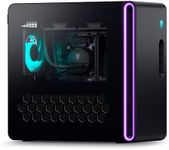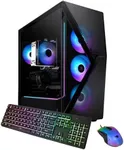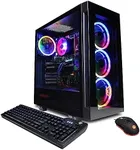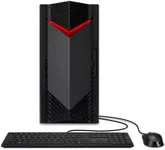Buying Guide for the Best Gaming Pc Build
Building a gaming PC can be an exciting and rewarding experience. The key to a successful build is understanding the components and how they work together to deliver the best gaming performance. Each part of the PC plays a crucial role, and selecting the right components based on your gaming needs and preferences is essential. Here are the key specifications you should consider when building a gaming PC, along with explanations to help you make informed decisions.CPU (Central Processing Unit)The CPU is the brain of your gaming PC, responsible for executing instructions and processing data. A powerful CPU can handle complex tasks and improve overall system performance. CPUs are often categorized by their core count and clock speed. For gaming, a CPU with at least 4-6 cores and a high clock speed (measured in GHz) is recommended. If you plan to stream or multitask heavily, consider a CPU with more cores (8 or more). Your choice should be guided by the types of games you play and whether you need additional processing power for other tasks.
GPU (Graphics Processing Unit)The GPU is crucial for rendering graphics and delivering smooth gameplay. It determines how well your PC can handle high-resolution textures, complex scenes, and fast frame rates. GPUs are categorized by their VRAM (video memory) and processing power. For modern gaming, a GPU with at least 4GB of VRAM is a good starting point, but 6GB or more is preferable for higher settings and resolutions. If you play graphically intensive games or use a high-resolution monitor, opt for a more powerful GPU. Your choice should be based on the games you play and the visual quality you desire.
RAM (Random Access Memory)RAM is the short-term memory of your PC, allowing it to quickly access data needed for running applications and games. More RAM can improve multitasking and reduce loading times. For gaming, 8GB of RAM is the minimum, but 16GB is recommended for better performance and future-proofing. If you run multiple applications simultaneously or play very demanding games, consider 32GB. Your choice should be based on your gaming habits and whether you use other memory-intensive applications.
Storage (HDD/SSD)Storage determines where your games and files are saved. HDDs (Hard Disk Drives) offer larger capacities at lower prices but are slower. SSDs (Solid State Drives) are faster, reducing load times and improving system responsiveness. For a gaming PC, a combination of both is ideal: an SSD for the operating system and frequently played games, and an HDD for additional storage. Aim for at least a 256GB SSD and a 1TB HDD. Your choice should be based on your storage needs and the importance of fast load times for your gaming experience.
MotherboardThe motherboard is the main circuit board that connects all components of your PC. It determines the compatibility and expandability of your build. Key factors include the socket type (matching your CPU), chipset (affecting features and performance), and form factor (size). Ensure the motherboard supports your chosen CPU, has enough RAM slots, and offers the necessary ports and expansion slots for your needs. Your choice should be guided by the components you select and any future upgrades you plan.
Power Supply Unit (PSU)The PSU provides power to all components of your PC. A reliable PSU is crucial for system stability and longevity. PSUs are rated by their wattage and efficiency. For a gaming PC, a PSU with at least 500-650 watts is typically sufficient, but higher wattage may be needed for high-end components. Look for an 80 PLUS certification for better efficiency. Your choice should be based on the power requirements of your components and any potential upgrades.
Cooling SystemCooling is essential to prevent overheating and maintain optimal performance. Options include air cooling (fans) and liquid cooling. Air cooling is generally sufficient for most builds, but liquid cooling can be more effective for high-performance systems. Ensure your case has good airflow and enough space for your chosen cooling solution. Your choice should be based on your performance needs and whether you plan to overclock your components.
CaseThe case houses all your components and affects airflow, cooling, and aesthetics. Cases come in various sizes (ATX, Micro-ATX, Mini-ITX) and designs. Ensure the case is compatible with your motherboard size and has enough space for your components and cooling system. Consider cable management features and the overall look you want for your build. Your choice should be based on the size of your components and your personal preferences for design and functionality.
